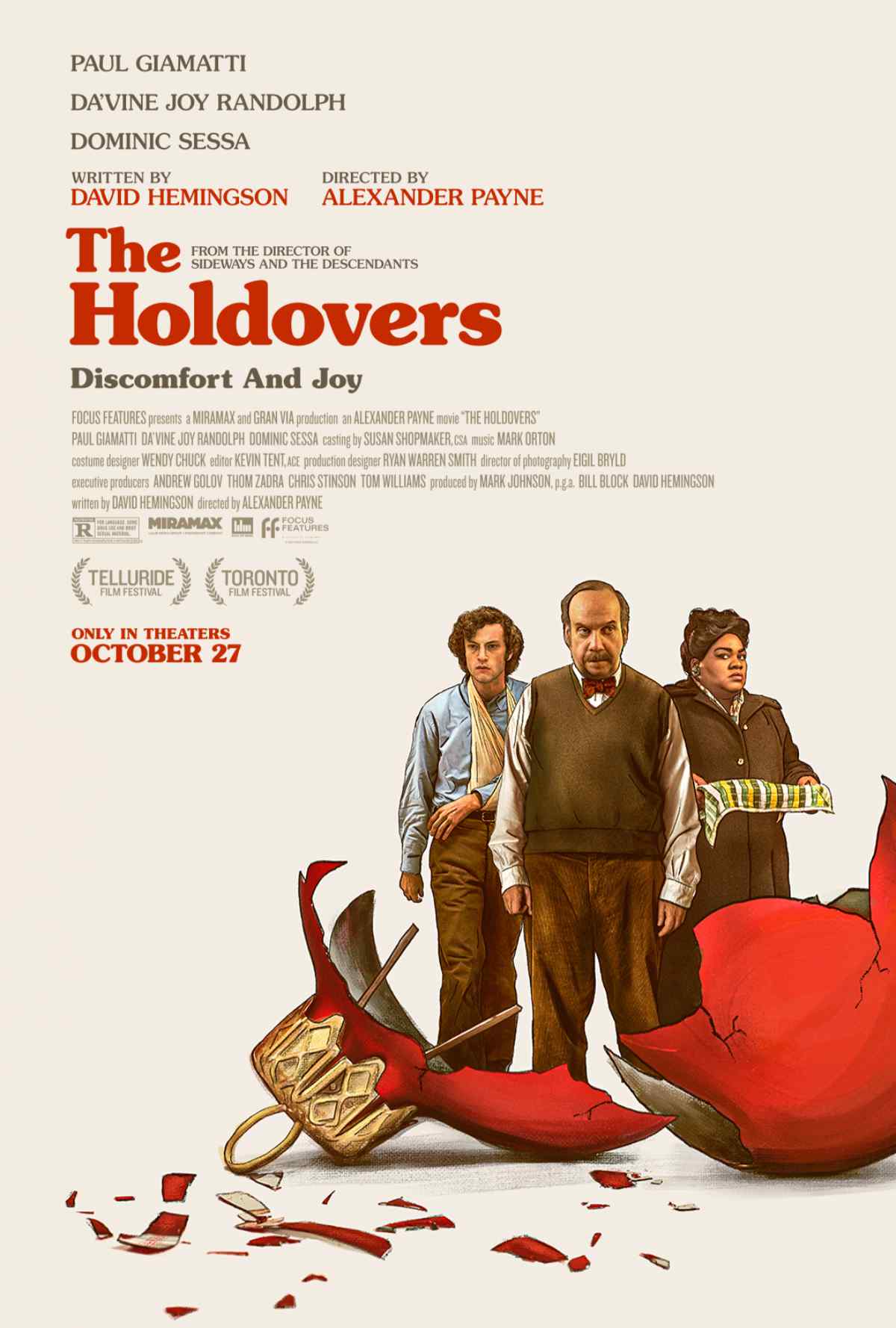Alexander Payne on His Latest Comedy Triumph The Holdovers
This past, weekend Focus Features launched the new Alexander Payne (Sideways, Election) comedy The Holdovers on six screens in New York and Los Angeles, where it took in an impressive $200,000 ($33K average), not to mention its current Rotten Tomatoes score of 96%.
If that isn’t enough to convince you to see the film, Vital Thrills had a chance to attend a press conference with Payne where he discussed his latest triumph.
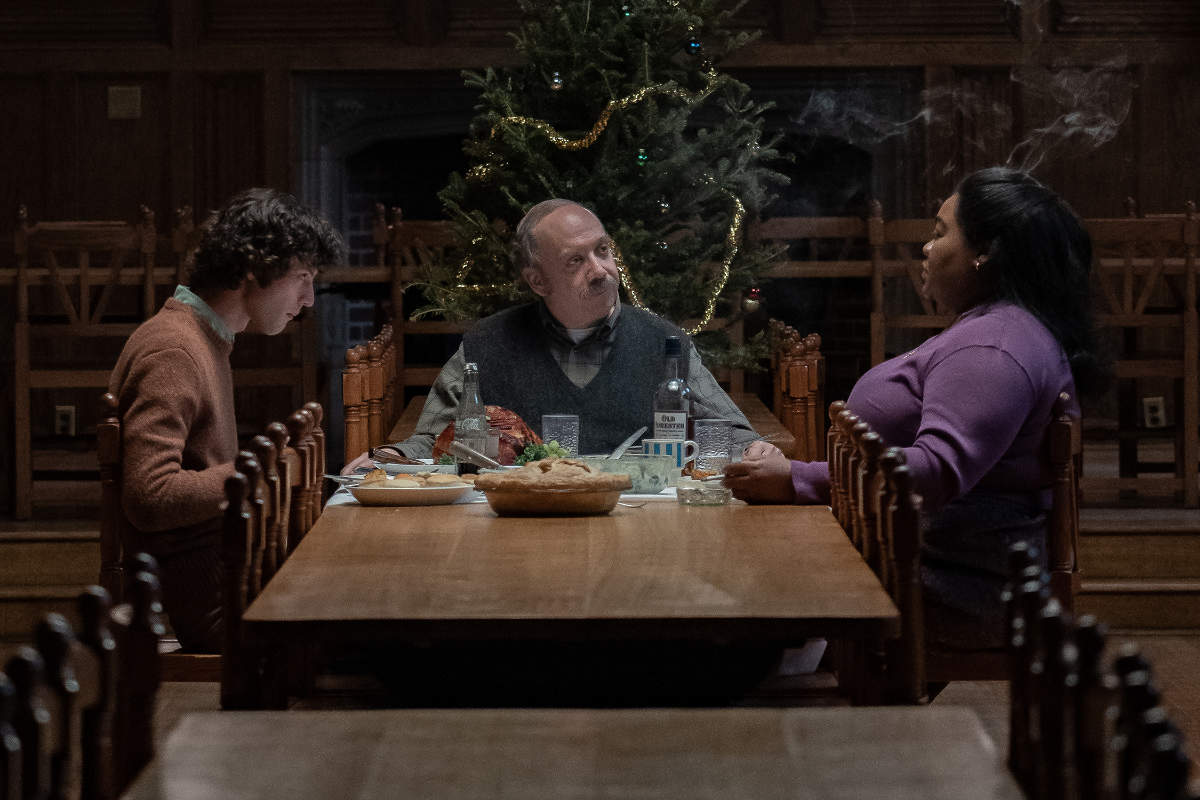
The Holdovers follows a curmudgeonly instructor (Paul Giamatti) at a New England prep school who is forced to remain on campus during Christmas break to babysit the handful of students with nowhere to go.
RELATED: The Holdovers to Stream Exclusively on Peacock
Eventually he forms an unlikely bond with one of them — a damaged, brainy troublemaker (newcomer Dominic Sessa) — and with the school’s head cook, who has just lost a son in Vietnam (Da’Vine Joy Randolph).
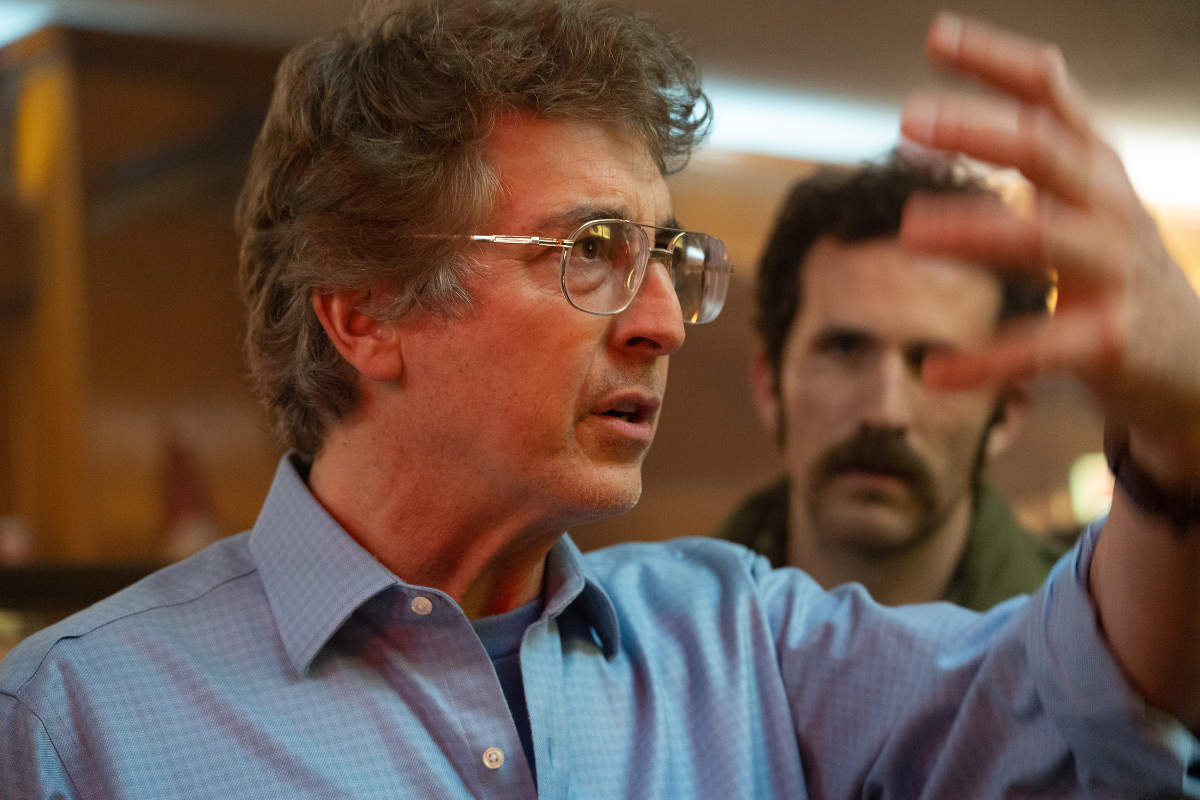
Even though Payne has two Best Adapted Screenplay Oscars for Sideways and The Descendants, he cannot take credit for the brilliant Holdovers script as it is the brainchild of veteran TV writer David Hemingson (Whiskey Cavalier, American Dad).
“I’m getting a lot of, ‘Wow, your script is so good.’ ‘Thanks, I didn’t write it,'” Payne jokes. “But the quotable insults and the little things that David inserted into the screenplay I find quite delightful.”
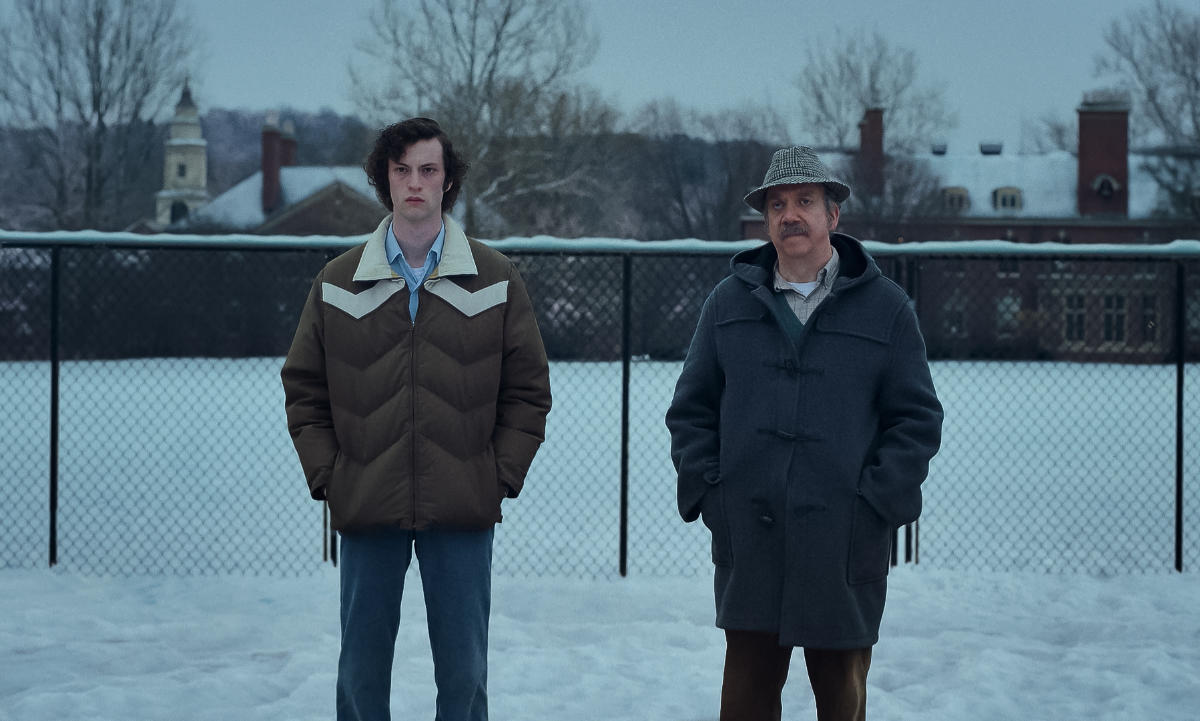
Many of said bon mots are delivered courtesy of the prickly prep school instructor Paul Hunham (Giamatti), a bit like John Houseman’s Professor Kingsfield from The Paper Chase gone to seed. This film marks a long-awaited reunion between Giamatti and Payne, who last worked together on the landmark Sideways.
“It was like, what’s taken us so long?,” admits Payne. “And, ‘Oh, we just worked together yesterday,’ that feeling you have with good friends, good collaborators. It’s just a direct continuation of what we were doing 20 years ago on Sideways.”
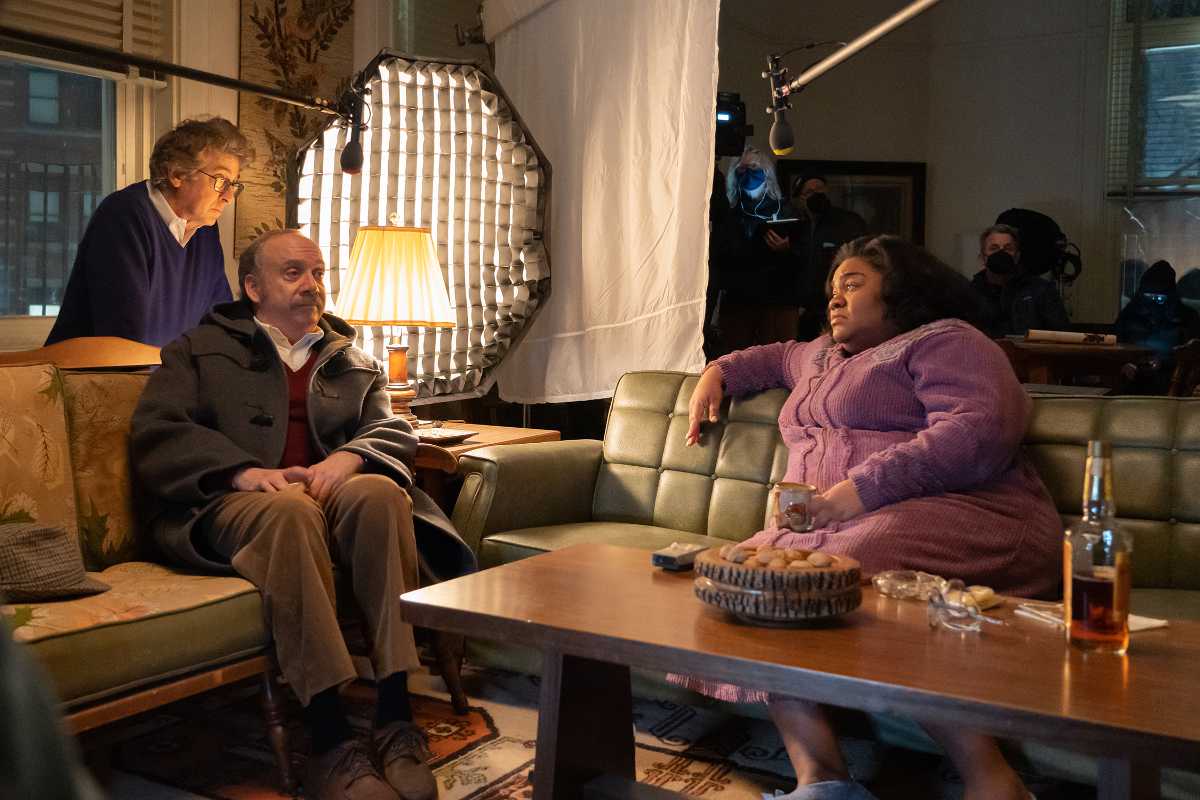
Having an actor of Giamatti’s caliber certainly brought a lot to the table, and his background was very similar to the crusty character he was playing. “He was a product of that world,” Payne said. “He went to Choate as a high school student, and then to Yale, as did David.
“Paul was able to tell me, ‘I know how to play this guy, because I knew these guys, and I knew this fellow.’ So I just let him do it. With most actors you think, ‘Oh, God, I hope he or she can do it and I don’t have to get rough with them.’ Paul is someone like Meryl Streep or Laurence Olivier. You cast that actor in that part because you’re curious to see what they’re going to do with it.
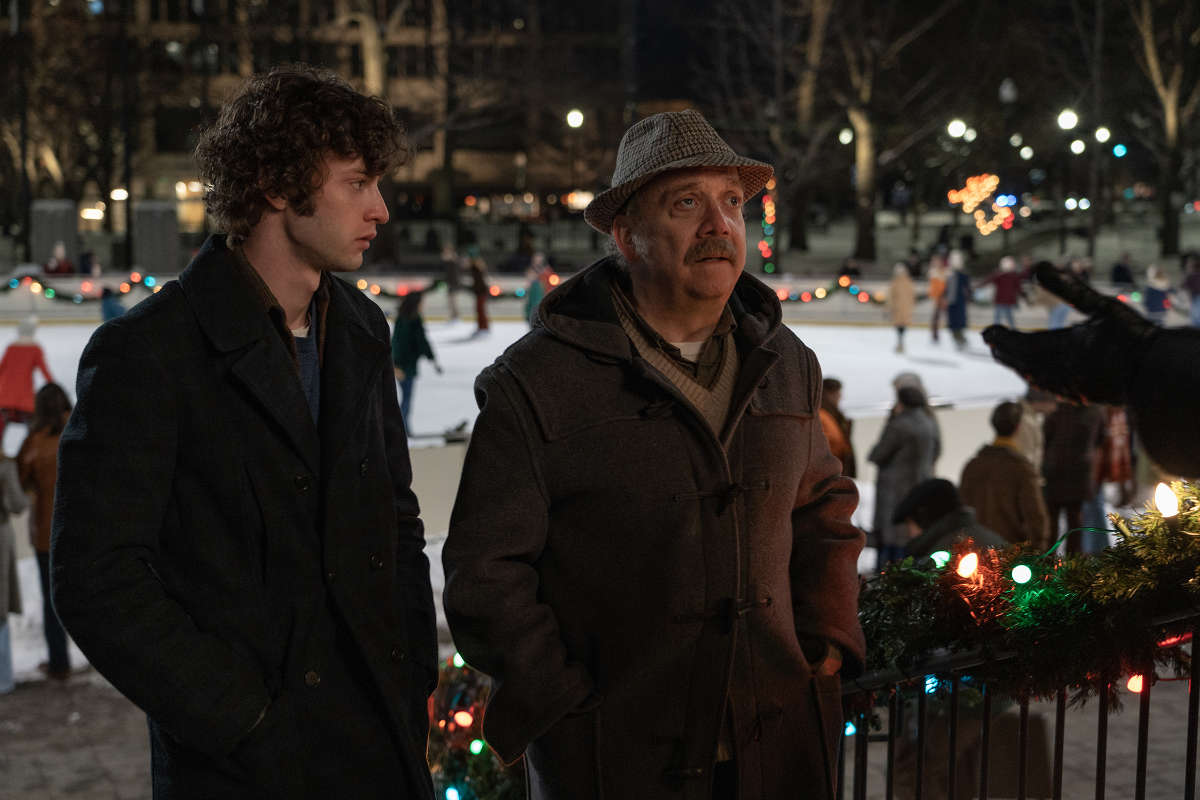
Payne continued: “You can do it a little bit this way or a little bit that way, but no matter what it is, it’s going to be awesome. That’s a great joy in working with Paul, to see a great artist and actor just do his thing. I’m always happiest with actors to whom I don’t have to say anything, and he is that, or if I do say something between takes, it’s basically syllables or gestures, because we have a good shared understanding of things.”
Payne was able to channel his own childhood memories, specifically of his older siblings who are the same age as Dominic Sessa’s protagonist Angus.
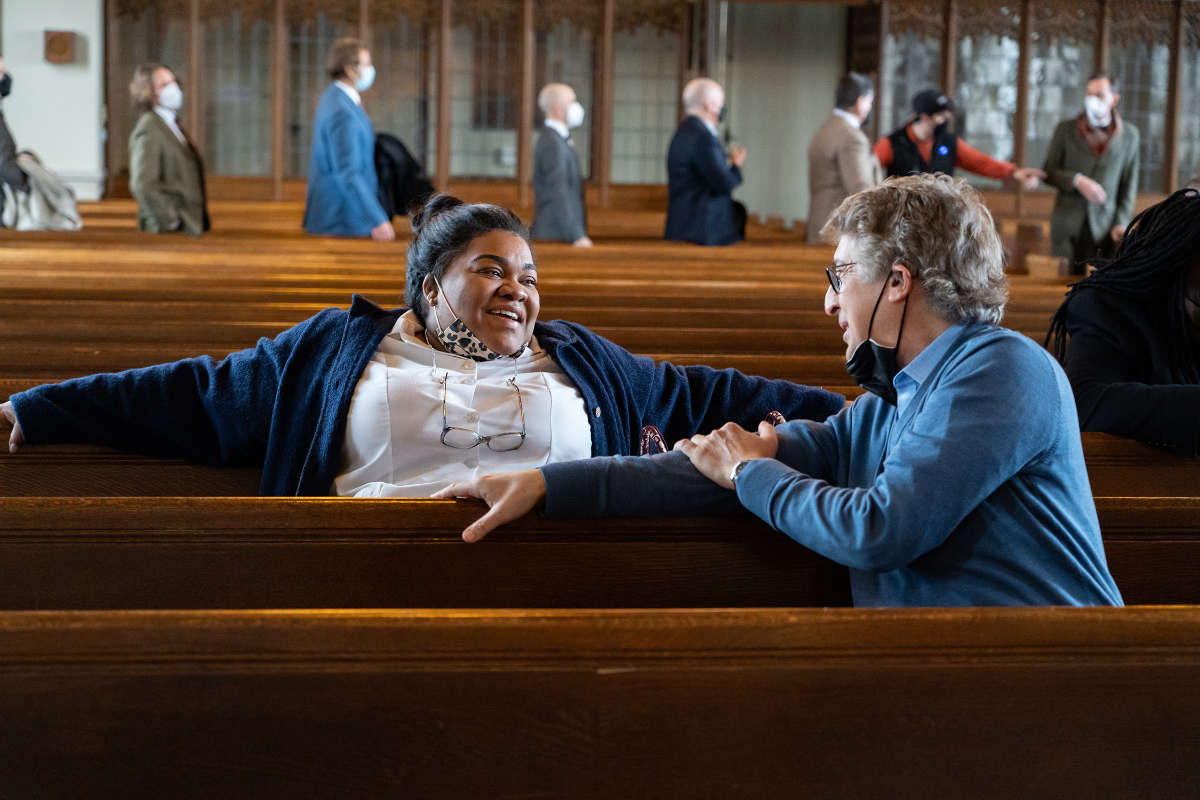
“I was four years in Latin class at an all-boys Jesuit school in Omaha,” the ffilmmaker revealed. “I’m still tight with my friends from Latin class, and there are some in-jokes woven into those scenes that only they will get. I was 9-turning-10 in 1970 to ’71, so I was young, but I had two older brothers, one of whom was that exact same year, graduated Omaha Central High class of ’71.
“I didn’t quite realize until later: ‘I’m making a film about that class.’ When you’re a much younger sibling, you live a lot vicariously through your older siblings, wanting to emulate them and adopt their taste and so forth. So I have vivid memories of that year. Taking it out of school is the movies of that period, because even at age 9 or 10 I was movie crazy.
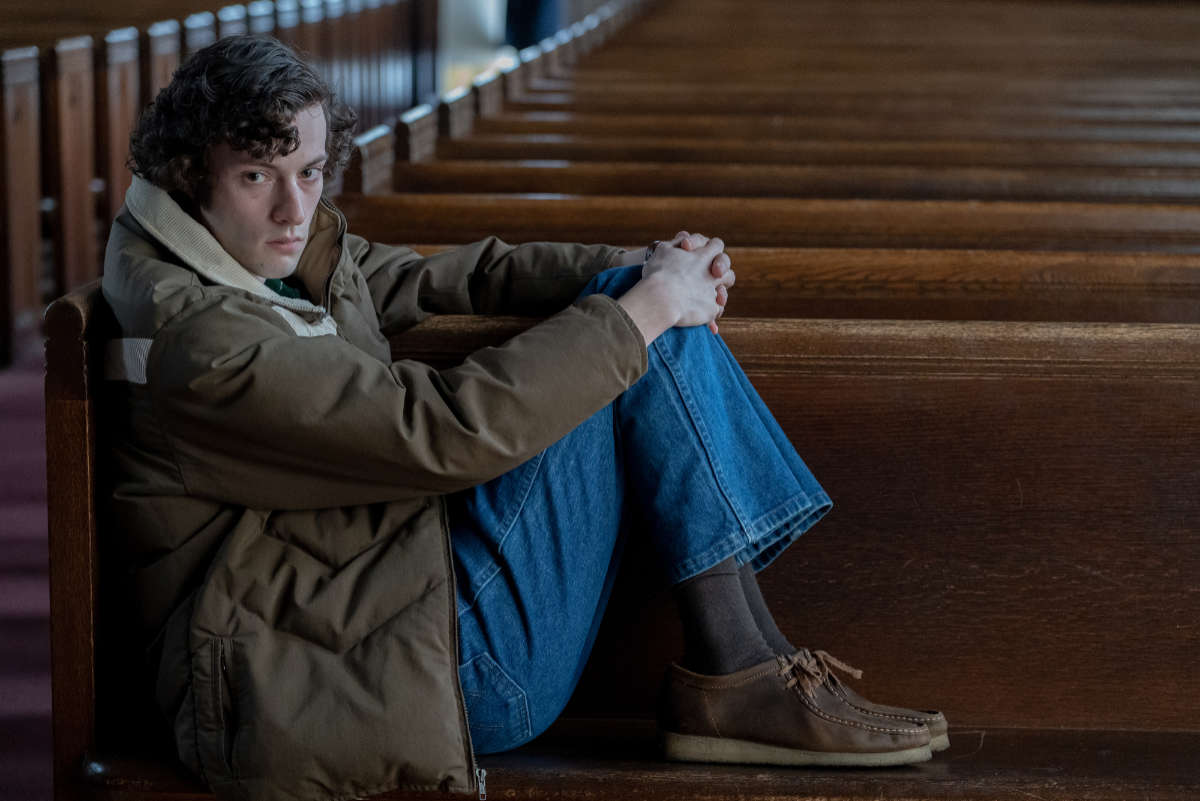
“For example, ‘Little Big Man’ is featured in the film. It’s appropriate to the time and the scene in which it’s presented. I saw it like four times in the theater when I was 9 years old. It’s not just the school thing, but a lot of contextual things bring us all back, I think.”
The Holdovers goes to great lengths stylistically to transport the audience back to the era of the early ’70s in which it takes place, even to the point that cinematographer Eigil Bryld shot it on 35mm film, eschewing digital photography. Some theaters are even presenting it on film.
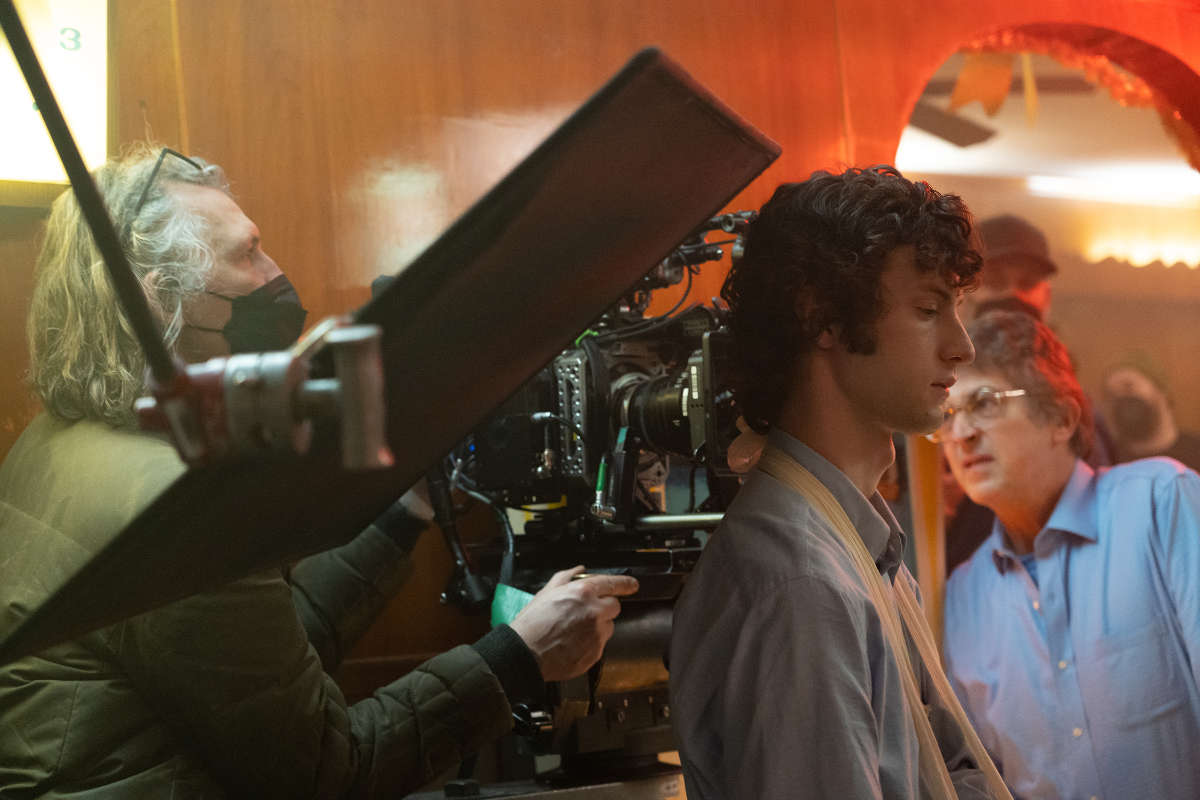
“Let’s be clear for the audience watching that it’s not just a period film, but my collaborators and I gave ourselves the thought challenge experiment of time traveling and pretending as though we were making a film shot in 1970 and ’71,” said Payne. “That the final film looks as though it might have been produced then.
“That meant telling ourselves we’re not making a period film, we’re making a contemporary film pretending we’re in 1970. We wanted the costume and production design not to rub our noses and how period it is, but rather to be banal and grimy, as though we were making a low budget film then. That was both a challenge and a delight.”
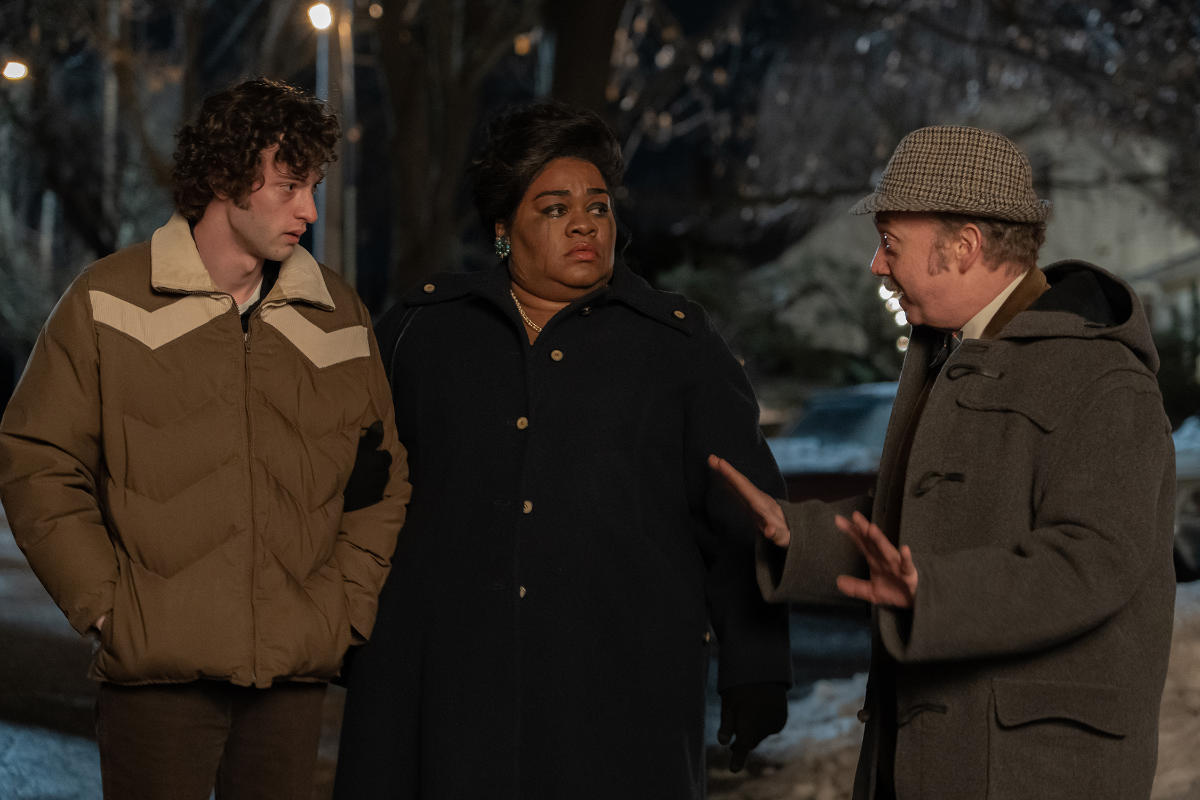
The process of finding newcomer Dominic Sessa, who makes an impressive film debut as the lead opposite Giamatti, was via an extensive search which eventually yielded fruit at a local level, as Payne detailed:
“The brief story about finding him was the New York-based casting director Susan Shopmaker and her staff fielded probably about 800 submissions from around the English speaking world of famous young actors. I don’t know who they are, but famous actors submitted by their agents to anybody anywhere who can just tape himself at home, upload it and press ‘send.’
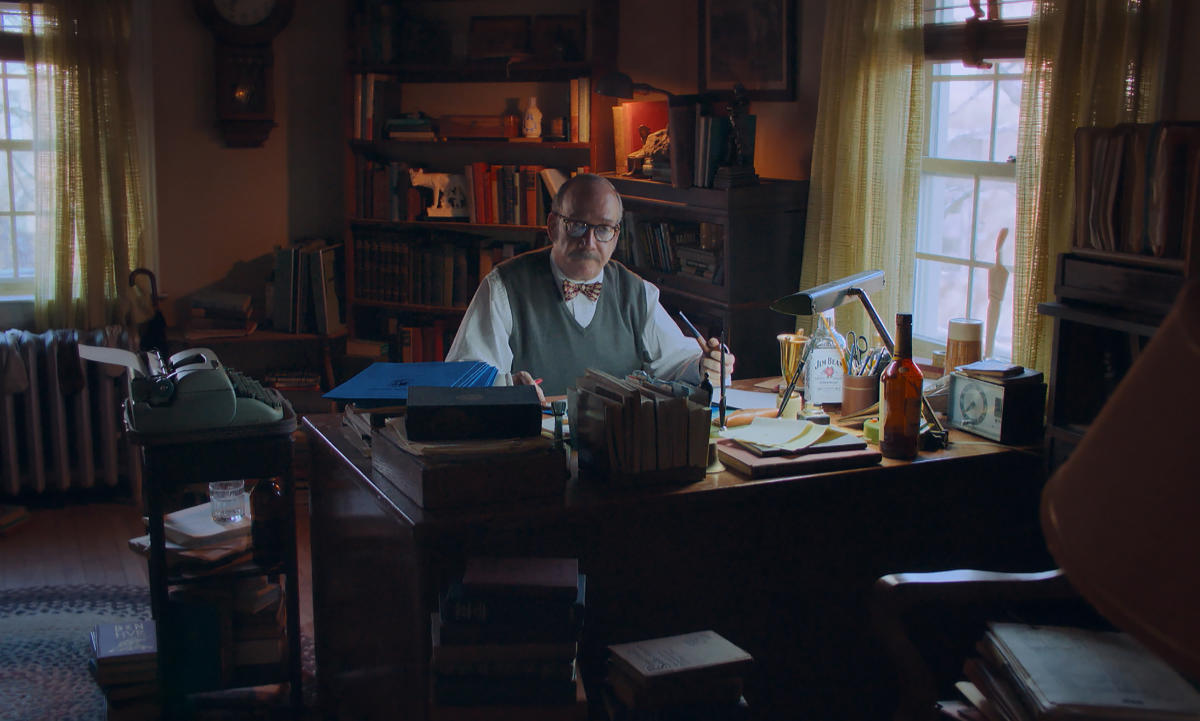
“It’s our duty to look at all of them. Out of those 800, I’ve maybe watched 50… 60…70… something like that. We didn’t find whom we were looking for. Finally it just came to do something as other auditions were still trickling in, to call up the schools where I actually was going to be shooting, ask the drama teachers, ‘You have any students who might want to audition for a movie?’
“At Deerfield, they picked up the phone, and the lady said, ‘Yeah, we have some actors who might want to audition.’ And I picked up two actors, one guy with two or three lines, and the leader of the damn film Dominic Sessa, who had never acted in film or television before. He was a star in the drama department, but was obviously very talented and he had the right hair.
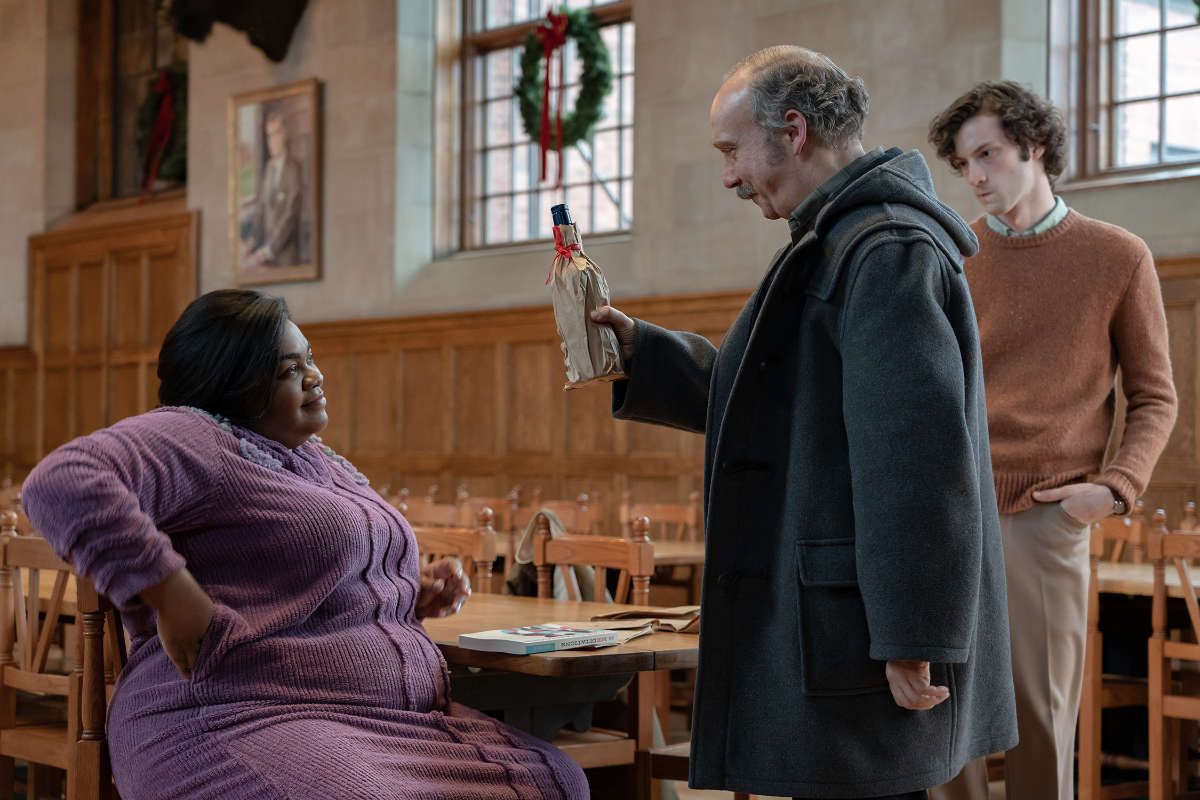
“If he hadn’t had the right hair, he might not have gotten the part as easily. Were we going to put a wig on the guy for the whole movie? It wasn’t the first audition, it took about five or six… he didn’t look like the character that David and I had more or less in our respective mind’s eyes imagined. He felt a little too old for the part, quite frankly. He just evinced in successive auditions such talent and emotional intelligence and life experience that he could bring to the part.
“Then I got Paul Giamatti involved. Paul was really rooting for him. Finally, in maybe the fifth or sixth audition, I got them together on Zoom. Not that I’ve ever relied on what they call chemistry reads, but I wanted to see the degree to which Paul naturally would be having kind of a mentor/protégé relationship with him, both on camera and off.
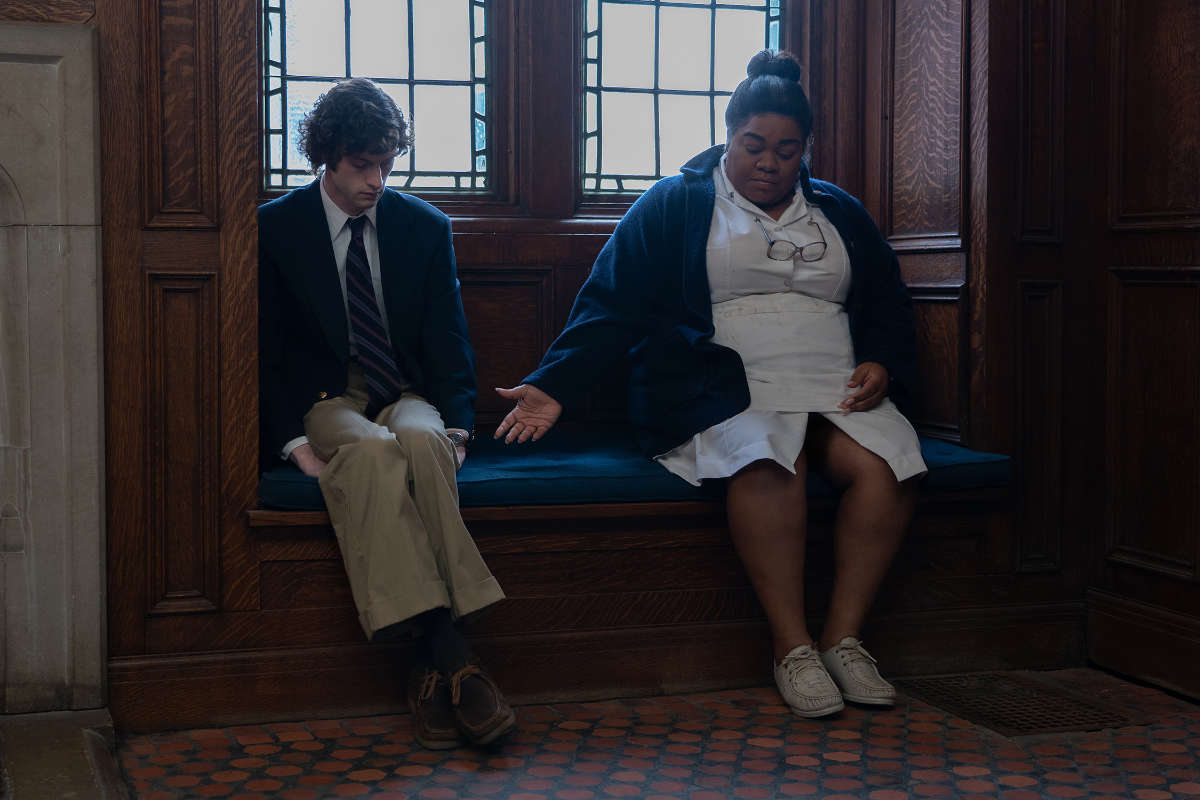
“‘Off’ meaning helping with acting tips and to be comfortable in front of the camera with all the machinery and everything. The good news is that Dominic didn’t need much help. He took to it like a duck to water, and I’ve never seen such innate talent, not just for acting, but for film acting. Technically, as he as he showed, it was pretty amazing to watch.
“It got to the point to where, like with Paul, I didn’t have to say much to him. Also, he was playing a version of himself. It’s quite remarkable that in his first big film role, here’s an actual senior at an elite New England boarding school, playing a junior at an elite New England boarding school.
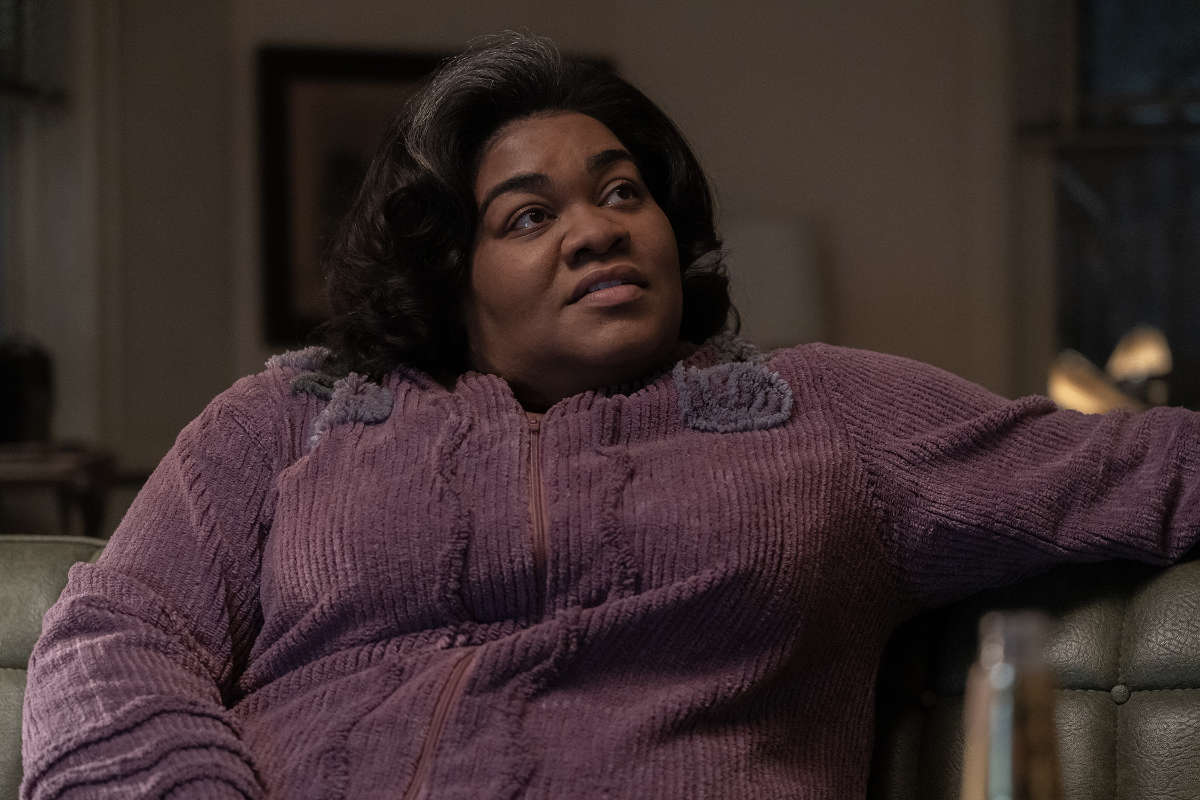
“He has that lens effort… big film actors might lie to people in real life, but they tell the camera things that they don’t tell anyone else. They reveal. They reveal themselves more to the camera than they do to any living human. I think he might have that.”
The Holdovers is currently playing in limited engagements in New York and Los Angeles, with a wide release on November 10 by Focus Features. The film is rated R for language, some drug use and brief sexual material.
